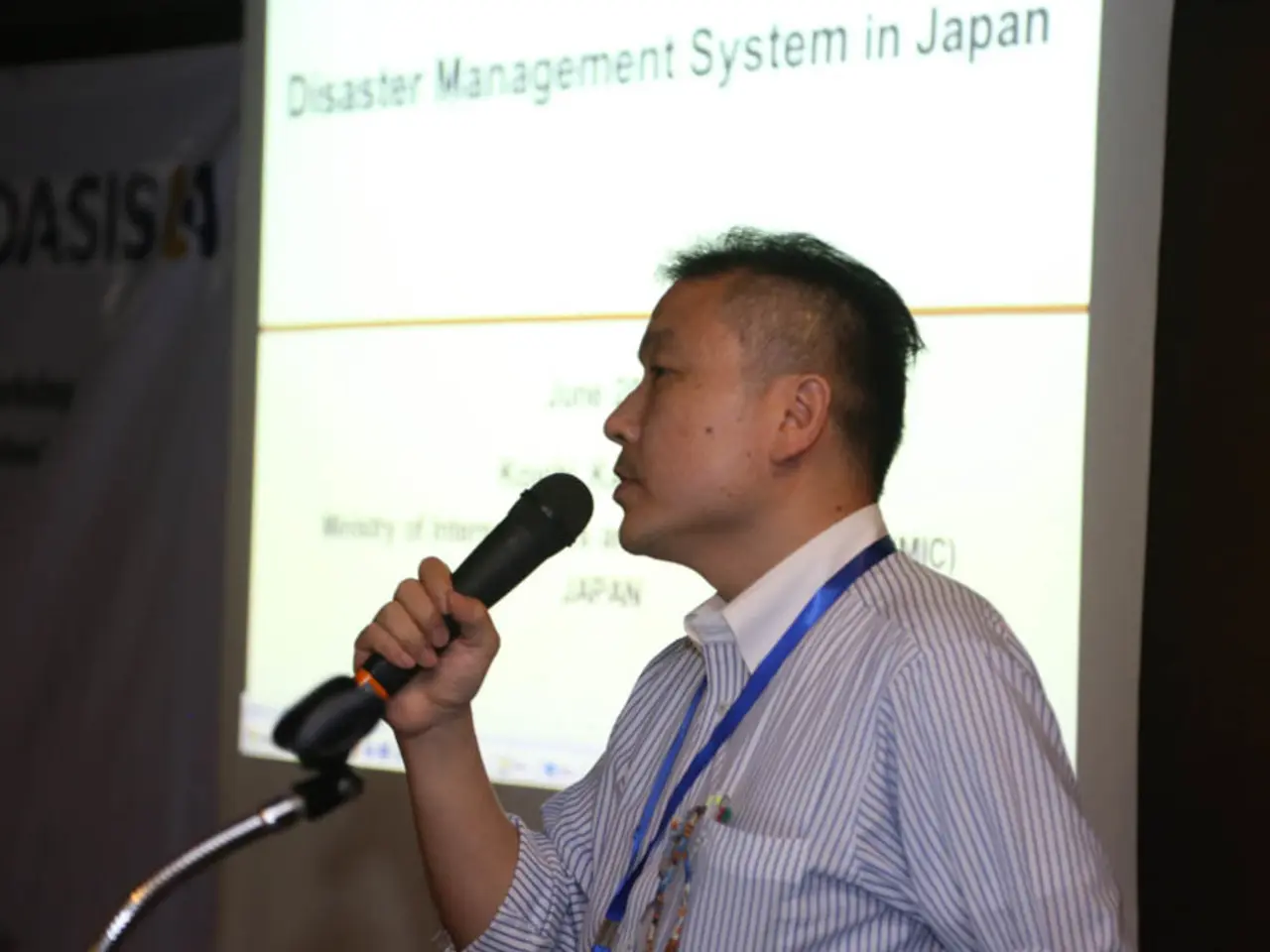United States-India relations face a test as India grants the right to discuss the Khalistan issue.
In recent discussions between India and New Zealand, during the visit of New Zealand's Prime Minister Christopher Luxon, the Indian government has expressed concerns about the activities of the Sikhs For Justice (SFJ), a Sikh separatist group advocating for Khalistan. The group, based in the United States, has a significant presence among the Sikh diaspora and operates freely in various countries, including the US.
The SFJ is planning a Khalistan Referendum scheduled for August 17, 2025, in Washington D.C., aiming to gather diaspora Sikh support for Khalistan. This referendum, termed a “Ballot Bomb” by SFJ leaders, is causing concern for India as it views the group as a terrorist and unlawful entity undermining its sovereignty.
The SFJ has been accused of fostering terror, running arms and explosives, and carting drugs across India from Afghanistan and Pakistan. The group's leadership has also been critical of the Indian government, particularly PM Narendra Modi’s administration, accusing it of suppressing Sikh separatist movements through illegal means such as assassinations and espionage.
The SFJ has used the Kartarpur Corridor, a visa-free passage for Sikh pilgrims to visit holy sites in Pakistan, to promote the Khalistan Referendum and host seminars. This has raised concerns and led to increased security due to reports linking the corridor to militant camps.
Tensions between SFJ-related activities and India-US relations have been strained, with accusations of Indian intelligence involvement in actions against Sikhs abroad. Recent controversies, such as the alleged involvement of Indian agents in the assassination of Canadian-Sikh activist Hardeep Singh Nijjar, have further complicated the situation.
The US has been criticized for its stance on the issue, with the Democratic regime of Joe Biden perceived as having no time or sympathy for India's problem arising from the presence of its diaspora, particularly in Canada and the US where the movement for Khalistan is being nurtured. However, under the First Amendment, there may be limits to what the US can do against groups who live on their soil.
The return of Donald Trump at the expense of the Democrats allows India to try and make its point of view known on the issue of Khalistani sympathisers' activities on foreign soil. The US has even quoted 'Five Eyes' intelligence in suggesting that India had also tried to kill the group's founder, Gurupatwant Singh Pannun, in New York. In response, India is establishing a probe to identify rogue elements from within the intelligence agencies who may have been involved in trying to bring about a 'hit' on Pannun.
It is important to note that the majority of Sikhs in India do not support separatism. The Sikh insurgency in the 1980s took place in the wake of Operation Bluestar and subsequent assassination of Prime Minister Indira Gandhi with the killing of thousands of Sikhs. However, the longing for a homeland for Sikhs is now being kept alive only by elements in the Indian diaspora.
In conclusion, the SFJ is an influential actor in the Sikh separatist movement from abroad, actively seeking US support and diaspora backing through events like the 2025 Khalistan Referendum. The group's activities complicate India-US relations and underscore an ongoing transnational dimension of Khalistani separatism, with significant operations centered in North America and attempts to influence diaspora opinion and US political discourse.
The SFJ's plan for a Khalistan Referendum in 2025, despite India viewing the group as a terrorist entity threatening its sovereignty, highlights the complexity of the ongoing politics surrounding the Sikh separatist movement, intertwined with general-news topics such as crime and justice.
India's efforts to address the issue, including the investigation into rogue elements within its intelligence agencies, demonstrate the seriousness with which they view the SFJ's activities and their potential impact on India-US relations.







